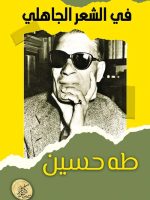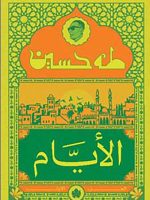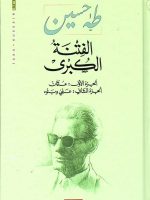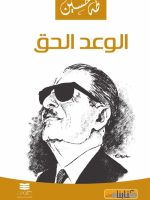Taha Hussein Ali bin Salama (1306 AH / November 14, 1889 – 1393 AH / October 28, 1973 AD), better known as “Taha Hussein,” was an Egyptian writer and critic, dubbed the “Dean of Arabic Literature.” He is considered one of the most prominent figures in the modern Arab literary movement. Taha Hussein’s ideas and positions remain controversial to this day.
He studied at Al-Azhar University, then joined the Ahlia University when it opened in 1908. He obtained his doctorate in 1914 and was sent to France to complete his studies. He returned to Egypt to work as a professor of history and then a professor of Arabic. He served as dean of the Faculty of Arts, then director of Alexandria University, and finally Minister of Education. His most famous books include: On Pre-Islamic Poetry (1926) and The Future of Culture in Egypt (1938). He was nominated for the Nobel Prize in Literature twenty-one times.
-
Literary Guidance
د.ا8.00The book addresses issues and approaches in Arabic literature using an analytical and critical approach that enriches thought and deepens understanding.
-
Lost Love
د.ا3.00This book explores the emotional and psychological struggles of humans in the face of disappointments in love and the vicissitudes of relationships.
-
On Pre-Islamic Poetry
د.ا6.00A bold critical study that reconsiders the sources of ancient Arabic poetry and raises questions about history, literature, and religion.
-
On the Margins of the Biography
د.ا13.00It presents an engaging literary account of the life of the Prophet Muhammad, peace and blessings be upon him, in a style that combines historical sensitivity with a creative touch.
-
Paradise of Thorns
د.ا3.00A collection of essays that contemplate issues of life, thought, and justice, in a profound literary and philosophical style.
-
The days are three parts
د.ا11.00A literary autobiography in which Taha Hussein presents his life’s journey from childhood through the stages of education and intellectual enlightenment.
-
The Great Tribulation
د.ا13.00A thorough historical and intellectual analysis of the events of the political and religious conflict in early Islam, shedding light on pivotal figures such as Ali and Mu’awiyah.
-
The True Promise
د.ا3.00A philosophical and religious work by Taha Hussein in which he discusses issues of faith and destiny, and explores the major questions of life and death within a doctrinal context.








